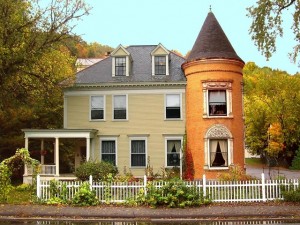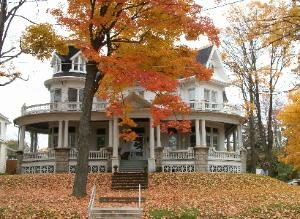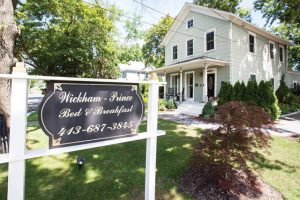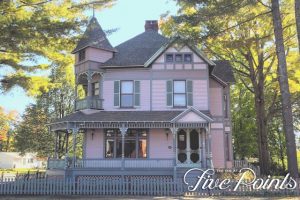A lawsuit has been filed challenging the denial of the Summer House Bed and Breakfast proposed for U.S. 98 in Inlet Beach. Project applicant Rita Bottems filed the lawsuit on July 22, a month and a day after Summer House failed to receive approval in public session of the Walton County Board of County Commissioners.
The bed and breakfast proposal consisted if a three-story, 13,130-square-foot building to be constructed on a 0.65-acre lot on U.S. 98 in Inlet Beach. The lot, located on the north side of U.S. 96 and across the highway from Walton Rose Lane, currently houses a gravel parking lot and several Katrina-type cottages which would have been replaced by the bed and breakfast.
According to the proposal, the bottom floor of the structure would have consisted of parking and there would have been 25 guest rooms.
The land use classification for the property is Neighborhood Infill according to the Walton County Land Development Code (LDC) and Neighborhood Commercial according to the Inlet Beach Neighborhood Plan, which is contained in the Walton County Comprehensive Plan (CP).
While coming before the BCC on June 21 with favorable recommendations from the Walton County Technical Review Committee, the Walton County Scenic Corridor Design Review Board, the Walton County Planning Commission, and county planning staff, the proposal had encountered opposition from neighbors in the Inlet Beach community. It had also raised eyebrows at the planning commission level due to the size of the building and had drawn comments on the need to tighten up the definition of bed and breakfast in the Walton County Land Development Code.
At the BCC hearing on the proposal, Walton County Planning Manager Mac Carpenter addressed an objection brought up at the planning commission meeting that the Florida Department of Business & Professional Regulation only licenses establishments if they have up to 15 rooms, and that they are licensed as hotels if they have more than 15 rooms.
Carpenter emphasized that the LDC and the CP, with Inlet Beach Neighborhood Plan as a component, contain the requirements with which the proposal must comply. “We believe it does,” he said.
A number of citizens speaking in opposition to the proposal at the BCC meeting said they would support it if reduced in size, with the request being called a “hotel” by some of the speakers. Other objections expressed involved the height of the building and the business’ potential to overcrowd the area, along with the objection that proposed parking would not be sufficient.
A motion for approval of the bed and breakfast at the BCC hearing had failed for a lack of a second, and a motion for denial had garnered a 2-2 vote, resulting in, it was announced, failure of the development proposal.
Based on that decision, a final order of denial for the proposal was rendered on June 23.
In her lawsuit, a petition for writ of certiorari, project applicant and plaintiff Rita Bottems describes her bed and breakfast proposal as one “that satisfies all objective, legislated land use and zoning criteria,” stating that the county commissioners, faced with “angry neighbors,” had, in their vote, ignored “well-settled law, the controlling standards, and the only competent substantial evidence presented,” in order to “appease the neighbors.”
The June 23 final order signifying denial of the proposal stated the following findings: “That the application for SUMMER HOUSE BED AND BREAKFAST in hereby DENIED based on the development not being residential in character,” and “That this recommendation is based on the Commission’s consideration of competent and substantial evidence and legal argument submitted in the record during the course of the subject hearing.”
Bottems counters in the lawsuit that the final order is in fact “not supported by competent substantial evidence and legal argument submitted in the record during the course of the subject hearing.” She also alleges that the statement in the final order regarding the proposal “not being residential in character” is “an incorrect statement of the controlling criterion.” The order expands, she argues, the applicable CP provision by requiring that he use itself rather than just the exterior character of the structure be residential in nature. This, she maintains, amounts to the imposition of a “more onerous requirement” on the applicant than required by the provision.
“Here, the only competent evidence in the record supports the granting of the Summerhouse application,” the plaintiff maintains.
Bottems also argues that the 2-2 BCC vote resulted no in failure of the proposal but in failure of the motion to deny.
She concludes that the court should grant her petition and quash (void) the final order of denial.









